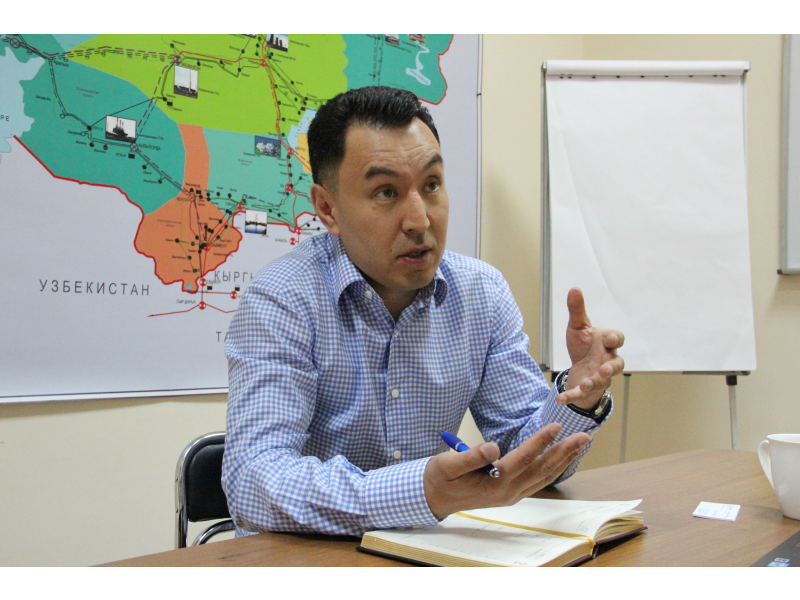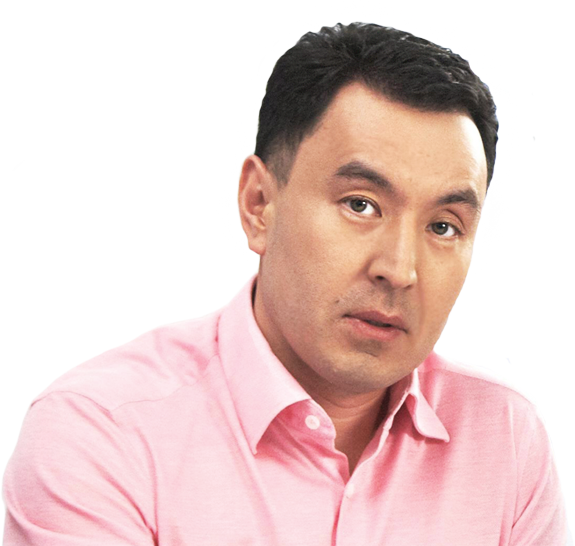Media
Communication without relations

Is arranged by the head of engineering company “Arman” Serikbay Bisekeev.
The more complex and specific a business is, the fewer chances there are that somebody will wish and be able to duplicate it. To choose an untrodden path, to believe in yourself and work much – they are the key elements f success for any projects, believes the president of engineering company “Arman” Serikbay Bisekeev.
Specializing in industrial communication systems for large enterprises, in 2000 “Arman” started working as a supplier of German equipment Neumann Elektronik to Russia[К1] . Later it started developing its own equipment. The idea of getting engaged into such an ambitious and specific business, as the businessman noted in his interview to “Къ”, emerged from the experience gained in previous projects. The main feature of the new idea was its “hard-to-duplicate” nature. “The one who has more money, will come and copy any business easily. To copy the opening of a shop, having lobbying power, more money, allowances from manufacturers is far much easier. In order to remain competitive, the project must be designed to be hardy duplicated”, explained the entrepreneur. “”the main idea was to defend from future competitors without big resources, let us say, to make some kind of “entering barrier”.
Another important element of success, as Mr. Bisekeev believes, is the ability “to make fashion”. “CIS did not have loudspeaker communication market. I and realized that it is quite possible “to make fashion”, to see the market development beforehand”, highlighted the businessman. So, the market did not offer digital industrial communications, and the businessman decided to start with supplies from Europe, and later to develop this direction individually. The idea of creating a demand “from scratch”, as a coin, has its reverse side: new fashion may fail to attract followers, who will believe in it. Before signing on the first contracts it took a year to convince the customers in the efficiency of communication systems, which can solve business issues, including those of labor safety, facilitate technological procedures and enterprise management.
The volume of investments to launch the project in the beginning of 2000s constitutes around $100 000 – 200 000. For the sake of loudspeaker communications Mr. Bisekeev made his personal sacrifice – he sold his flat and other belongings. “Any way, money is only means of achieving the goal”, highlighted Mr. Bisekeev. However, the businessman is sure, that anyone can start his own business with investments even ten times less than he had.
He entered the Russian market of industrial communications without any relations or links. “People often ask me about that, and I reply: where could I, 16-year old boy, have any relations in Saint-Petersburg from? We all know perfectly well that both Moscow and Petersburg are quite wary of Asians. No one ever met me with his doors wide open. That is why people need ideas so much, need to work much, even if something does not work out”, he clarified.
Presently “Arman” is developing its geographical scope of operations and presence. Among its Kazakhstan clients - Almaty subway, Astana airport, Shymkent refinery, Intergaz, the Ministry of Defence of the Republic of Kazakhstan, etc. As for plans, Mr. Bisekeev said, they are going to participate in re-equipment of alerting systems in the Ministry of Emergencies of the Republic of Kazakhstan. As he says, they have already posted a letter addressed to the minister; however, no reply has been received yet.
Obviously, Mr.Bisekeev faced the decrease of the conditional prices of offers made to Kazakhstan companies. The fact that it is difficult for foreign companies to enter Kazakhstan market was repeatedly complained by equipment and service suppliers for large businesses. As a result, notwithstanding the quality of the technical solutions proposed by the company, it has no competitive edge over foreign firms. As per the top-manager’s words, the one who supplies cheaper will be the one to win the tender. “The tender is held, and then one can earn dozens of millions of dollars on an after-sales service contract, because the equipment simply stops working over time”, says Mr. Bisekeev.
In his opinion, the determining factor should be not the price of the equipment at the time of purchase, but the so-called ownership costs, including purchase price, fuel expenses, repair expenses, service maintenance, etc. Only when counting all the expenses for the nearest 10 years it is possible to see its real price. “Our equipment becomes cheaper in 2 years, and in 10-year time it is 400% cheaper if compared to another. However, nobody in Kazakhstan considers this when buying something. Everybody needs cheap, and there are cheap offers, where the interest is reimbursed within after-sales service contracts. This prevents modern solutions to be brought to Kazakhstan”, he complained. Though, the businessman is not upset with his Kazakhstan problems that much – due to climate peculiarities and low population, Kazakhstan is not a priority area for his business.
The company is aimed at developing its representatives in Germany, India, Singapore, and UAE. “If we become leaders in India and South-East Asia, where there are more than 1.5 billion of population, it will make us a significant share of the world market”, the businessman summed up. Next step will be to penetrate into Brazilian market. Further, as per Serikbay Bisekeev’s words, it will make sense to establish integrated business, particularly, the businessman hopes to become a general contractor (EPC), who would build enterprises on a turnkey basis. “Kazakhstan has few companies, which can build an object within the time frame specified and having an exact budget without increasing it unreasonably, and in line with the required quality standard”, highlighted the entrepreneur, pointing at unsatisfactory quality of the recently built objects. The solution for the problem he sees in establishing independent audit rules, which would be universal and common for everyone. “The State does much in this field. But some of people, who stand between the first person and consumers, – each of them tries to play his own game”, thinks the businessman.
Author – Irina Kurbanova
The source is here






